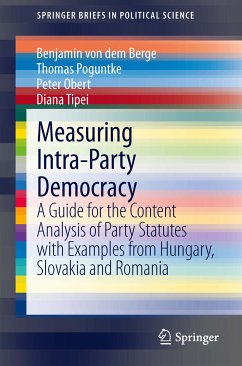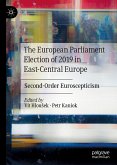This book presents an integrated approach to measuring the level of intra-party democracy through deductive and standardized content analysis of party statutes. Following the two main criteria of intra-party democracy - inclusiveness and decentralization - three main categories of intra-party democracy are theoretically derived: members' rights, organizational structure and decision-making. On the basis of theoretical considerations further sub-categories and individual items are deduced from these main categories and put together into a comprehensive coding scheme. Furthermore, precise coding instructions are presented. Since it is the ultimate aim of this book to present an approach to measuring the level of intra-party democracy for any party statute and to express this in numerical terms, the final step is the quantification of the coded data and the calculation of a numeric measure of intra-party democracy. A numeric value of intra-party democracy can be calculated for any statute of any political party. Furthermore, empirical examples from Hungary, Slovakia and Romania are presented. ¿
Dieser Download kann aus rechtlichen Gründen nur mit Rechnungsadresse in A, B, BG, CY, CZ, D, DK, EW, E, FIN, F, GR, HR, H, IRL, I, LT, L, LR, M, NL, PL, P, R, S, SLO, SK ausgeliefert werden.









